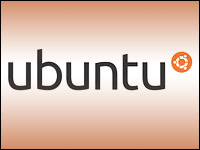
Canonical on Thursday released Ubuntu 10.04 LTS Desktop and Server Editions, the latest in its string of popular Linux distributions. Both are available for free download. The desktop version will be preinstalled on a range of computers from a number of manufacturers this summer.
Canonical wants Lucid Lynx to draw a “whole new category of users” to the open source operating system, said CEO Jane Silber. A variety of changes target the mainstream market, including a new look and feel and the launch of a music store.
Chasing the Consumer
Perhaps most notably, this Ubuntu release targets the demographic that software partners most want to reach — those monetizing the Web through use of social media. Among the many third-party software makers that already have developed tools or support for the release are Web-based video content aggregator Boxee and, of course, Mozilla’s Firefox. Yahoo already has a toolbar ready for the platform, according to Canonical.
The desktop version sports a new “Me Menu” that consolidates access to Facebook, Digg, Twitter, and other social networking sites, along with chat tools for Google Talk, MSN and IRC. Enchanced desktop integration for the online service Ubuntu One now provides bookmark and contact sharing.
Openness is key in the world of Internet media, Boxee CEO Avner Ronen told LinuxInsider.
Boxee seeks an environment where devices are open and content is readily available to consumers who want it, he noted.
Internet-based TV, he said, can run on “anything with a CPU.”
Going Even Smaller
In fact, Canonical seems to be aiming for users of all types of devices, not just desktop machines, as it expands into the consumer world. A netbook edition of 10.04 will provide even faster boot speeds on SSD-based devices and faster suspend/release time to extend battery life, the company said.
The New “Ubuntu One Music Store” provides music from the major labels, playable through the default Ubuntu music player. Users can purchase tracks, store them on the online Ubuntu One service, and share DRM-free music across multiple computers and other types of music players, according to Canonical.
Courting Developers
Of course, to draw consumers to an operating system, one must have software they want to use. Thus, Canonical is reaching out to developers in a variety of ways, not the least of which is through extensive community forums.
“I think Canonical’s done a great job creating a very developer-friendly Linux distribution,” Jeffrey Hammond, principal analyst with Forrester Research, told LinuxInsider. “It’s dead easy to install and configure, and there’s not a lot of difference between what you develop on and what you deploy to.”
Ubuntu is particularly popular with Eclipse developers, he added.
Walking the Line
Still, Canonical must contend with Linux’s reputation — that of all open source software — as inhabitant of a world too wild and woolly for corporate safety. Granted, that assumption has diminished substantially over the last few years, but positioning based on stability and long-term viability continues.
Thus, Canonical touted the three years of support through free security ad maintenance updates for the desktop LTS (long-term support) version and five years for the server version, as opposed to the 18 months it generally provides for a standard release.
The 10.04 server version extends the cloud-computing capability of Ubuntu Enterprise Cloud, said Canonical, demonstrating that the company continues to walk the line between the new and shiny features that consumers want and the cost-conscious elements preferred by corporations.
Ubuntu now accounts for a 5 percent share of paid subscriptions and nonpaid deployments of new copies of Linux worldwide, Canonical noted, based on figures from IDC.



















































